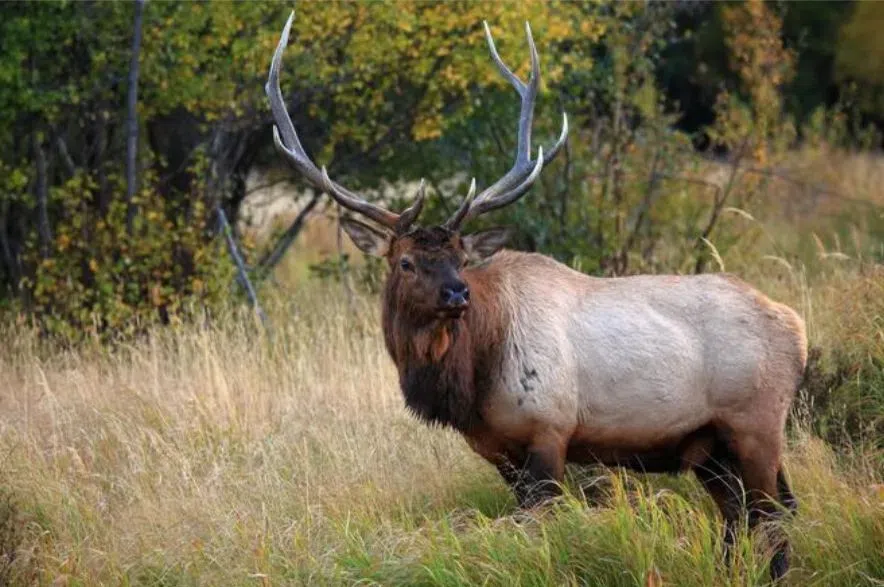A recently announced province-wide elk hunt has caught hunters off guard.
Now those hunters are raising concerns about safety, access and a lack of consultation.
Read more:
- Rolling the dice: Inside a Saskatchewan outfitter’s daily hunt
- Sask. adds elk hunting opportunity in effort to limit crop damage
- Elk, bear populations on the rise, mule deer decreasing from CWD for hunting season
- WATCH: Hundreds of deer and elk cause daily damage to Plunkett farm
The Government of Saskatchewan added an antlerless elk season from Nov. 20 to 27, covering all farmland zones south of the provincial forest, in an attempt to help reduce herd sizes, according to officials.
“We received a phone call last Thursday at about 8:45 a.m. letting us know there would be an announcement coming at 10:30 a.m. about a farmland elk season covering zones one to 50,” said Saskatchewan Wildlife Federation Executive Director Darrell Crabbe.
“That’s unprecedented in our history.”
Crabbe spoke on the Evan Bray Show about the province-wide hunt.
Listen to the full interview with Darrell Crabbe:
Crabbe said the week-long hunt will overlap with Saskatchewan’s regular whitetail deer season, which is already the busiest time, when the largest number of hunters are in the field at any given time in the year, across the province.
“So now you’re going to add another layer,” Crabbe said.
He said the overlap could crowd fields, raise the risk of accidents and create additional pressure for landowners already dealing with access requests.
Crabbe added that while the federation supports herd management, the government needs to co-ordinate better with hunters, farmers and local municipalities before introducing new seasons. He said the decision contradicts the province’s Management Plan for Elk in Saskatchewan 2025-2034, which calls for consultation with stakeholders through the Provincial Wildlife Advisory Committee. This group includes hunters, trappers and agricultural representatives.
According to Crabbe, none of the organizations represented on that committee were notified before the announcement.
Beyond safety, Crabbe said, access remains the most significant barrier to managing elk effectively.
“For a hunt to be successful, you need to have access to the resource, and that continues to be the biggest concern,” he said.
He explained that Saskatchewan already has multiple elk hunts running this year, with only short gaps between seasons. Between late August and mid-January, hunters will have had less than 40 days off.
The federation said that without improved access to private land and a co-ordinated management strategy, efforts to reduce elk numbers in problem zones will continue to fall short.
Crabbe said the organization wants the province to engage hunting, conservation, and agricultural groups to find a long-term solution that balances herd control with safety and landowner rights.
“We want to help landowners who are experiencing issues,” Crabbe said. “But we need a plan that’s informed, inclusive, and effective.”
We reached out to the Saskatchewan government for comment, but hadn’t received a response before the publication deadline.











